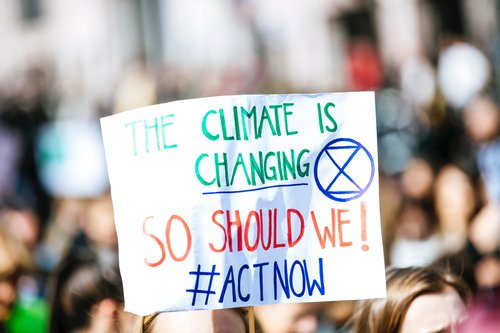With “Sustainability Analyst” appearing at number 13 on LinkedIn’s list of today’s fastest growing jobs, the weather is more than a topic of polite conversation for job seekers.
LinkedIn defines the role as researching and tracking “an organization’s environmental impact to develop strategies, practices, and programs that support corporate sustainability efforts.”
That may sound like some very “green” mumbo-jumbo, the kind of language that frequently reflects more of a public relations focus than an attempt to do something truly substantive when it comes to the environment.
But the appearance of a role devoted to sustainability so high on the list also reflects a related – and very real – trend that’s likely to impact jobs and many areas beyond the job market.
That trend is the climate-related change that’s going on around us, a change that’s all too real no matter one’s ideological bent. And for those inclined to see climate activism as the product of liberal indoctrination, it’s worth noting that organizations with money and lives at stake – think Exxon and the U.S. military, hardly liberal standard-bearers – are committing significant resources to climate change response.
In any event, the effects of climate change are not always intuitively obvious. We’ve seen in the U.S., in recent weeks and months, a series of weather catastrophes of every kind, from floods to droughts to wildfires to the usual suspects of

blizzards, tornadoes, and hurricanes.
These dramatic weather events are not likely to let up. Standard & Poor, another organization that’s hardly left-leaning, has some good news and some bad news to share.
For the good news, climate-related deaths have dropped threefold in the last 50 years, a decrease that stems from better and earlier warnings of disasters on the horizon, along with better mechanisms for response.
But the bad news is indeed bad. Climate-related disasters are now nearly five times as frequent, and, given current trends, “the number of disasters could rise to 560 per year by 2030, up 40 percent from 2015.”
And, according to S&P, we’re really not ready for it. “Lagging investments in the technologies and interventions needed to support adaptation are widening each year - up to $340 billion per year of adaptation finance is needed by 2030.”
All of which brings us back to the question of the job market, an arena that feels the impacts of climate and weather now and in the future, with green jobs growing faster than the talent pool can fill them. Turning to LinkedIn again, based on a 2022 survey, green job openings grew 8 percent since 2015 but the talent pool grew only 6 percent.
Meanwhile, this year, according to the International Energy Agency, as cited by Bloomberg, we now have more people employed in clean energy than in its fossil fuel counterparts.
For those who consider moving to roles that are climate and weather related, all of the usual caveats that come with changes in career focus apply, with a few added concerns that are specific to the green economy.
For one, while it’s well worth pursuing the appropriate credentials, whether in alternative energy or corporate sustainability or wherever your interests lead, there’s a problem inherent in any newly defined sector. You’ll find the same employer preferences for experience in the field that you’ll find in any long-established field. As a result, a job search is likely to require an extra dose of patience, and it’s worth trying to address the “lack of experience” factor with an internship.

In addition, the entire field, whether you consider sustainability, energy alternatives, or any other “green” endeavor, tends to be one place where the government plays a very large role, and a role that’s constantly changing.
As a result, be ready for surprises down the road. Bloomberg cites the case of an executive who left Expedia for a role as CTO at Sunrun, the solar energy firm. Per Bloomberg’s brief profile, she was greeted at the new job with “Welcome to the solar coaster.” With that in mind, “in just her first few months on the job, there were dramatic changes in how solar power gets paid for, including the passage of the Inflation Reduction Act that extended U.S. tax credits for solar.”
Like any new field, the green sector is in flux. There is plenty of demand for people with the right skills, and especially for those with the right experience, and it can certainly provide a way to do work that’s meaningful to you. It’s also, however, a field that is going to necessarily change as time goes on, and the precise nature of that change is complicated by the fact of all that government involvement and the intrusion of politics into the picture, an intrusion that’s always a wild card in predicting how things will develop.
The opportunities, including the chance to do valuable and meaningful work, are certainly there, and most of the advice that works for job seekers in any field will work just as well here. One or two points need even more emphasis here than they might merit in an established field: Go in armed with as much information as possible, and be prepared to be flexible going forward. And in this context, looking before leaping has never been more applicable.
If you need assistance interviewing for those sustainability jobs, or positioning yourself as the greenest, most qualified candidate for the role, we offer a variety of resume, cover letter, and coaching packages to help you reach all of your career goals.
